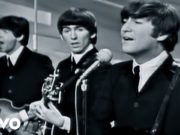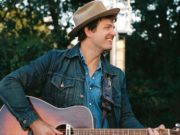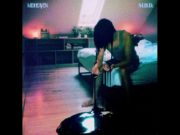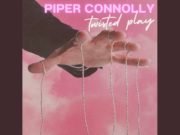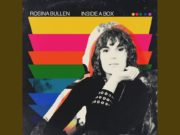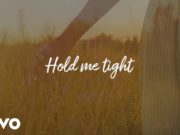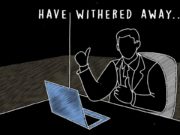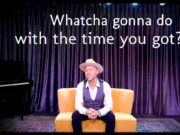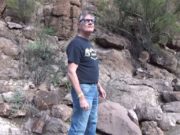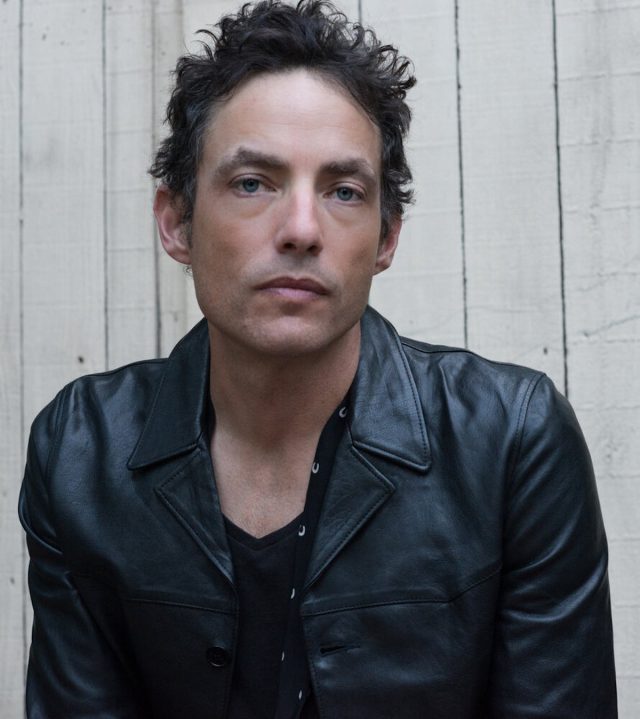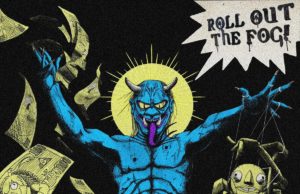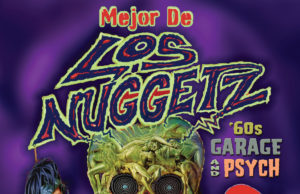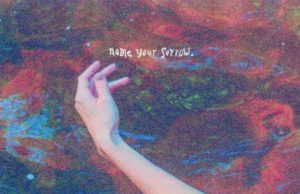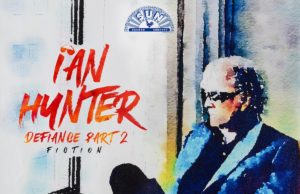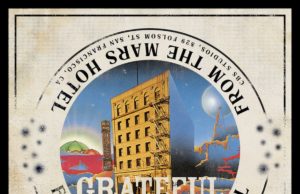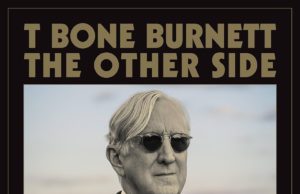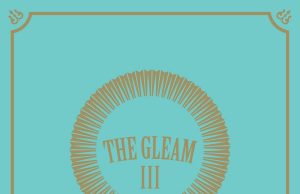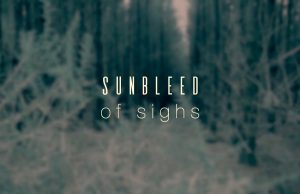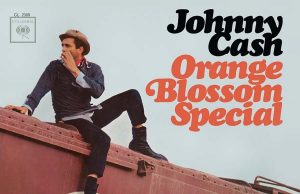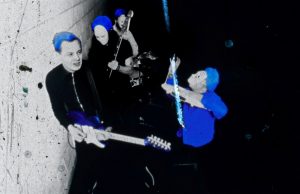A lot can change in nine years. Just ask Jakob Dylan. His latest album Exit Wounds — his first Wallflowers album since 2012’s comeback disc Glad All Over — finds him working with an entirely new band. That’s pretty much a 180 from the way things were when I interviewed him shortly before the far more collaborative Glad All Over was released. I’ll let you read for yourself. As usual, a bunch of our original conversation had to be edited for space, but I’ve restored it here.
Life in The Wallflowers is more than Jake these days. The recently reconstituted rockers’ new disc Glad All Over isn’t just their first album in seven years — it’s also the first they wrote as a group, frontman Jakob Dylan reveals.
“I’ve sat down with the burden of writing 15 songs by myself for the last 20 years,” he says. “That’s how it’s worked for the band’s history. But there are other ways to do it. And when we got to this record, we’d had a lot of discussions beforehand. The band wanted to be more involved with the writing, and I wanted the assistance.”
Something else they wanted: To reconnect with the simple pleasure of making music — the thing that brought them together more than two decades ago, long before the days of hit singles like One Headlight and platinum albums like 1996’s Bringing Down the Horse. One spin of Glad All Over and it’s clear they succeeded. Recorded on the fly in The Black Keys’ Nashville studio, the album finds the group — original singer-guitarist Dylan, keyboard player Rami Jaffee and bassist Greg Richling, now joined by lead guitarist Stuart Mathis and former Chili Peppers / Pearl Jam drummer Jack Irons — rocking harder and louder than they have in a decade, happily sacrificing slick perfection for raw immediacy.
From his L.A. home, the 42-year-old Dylan — you may have heard of his father — called up to talk musical chemistry, banishing ballads and making bets with his old man.
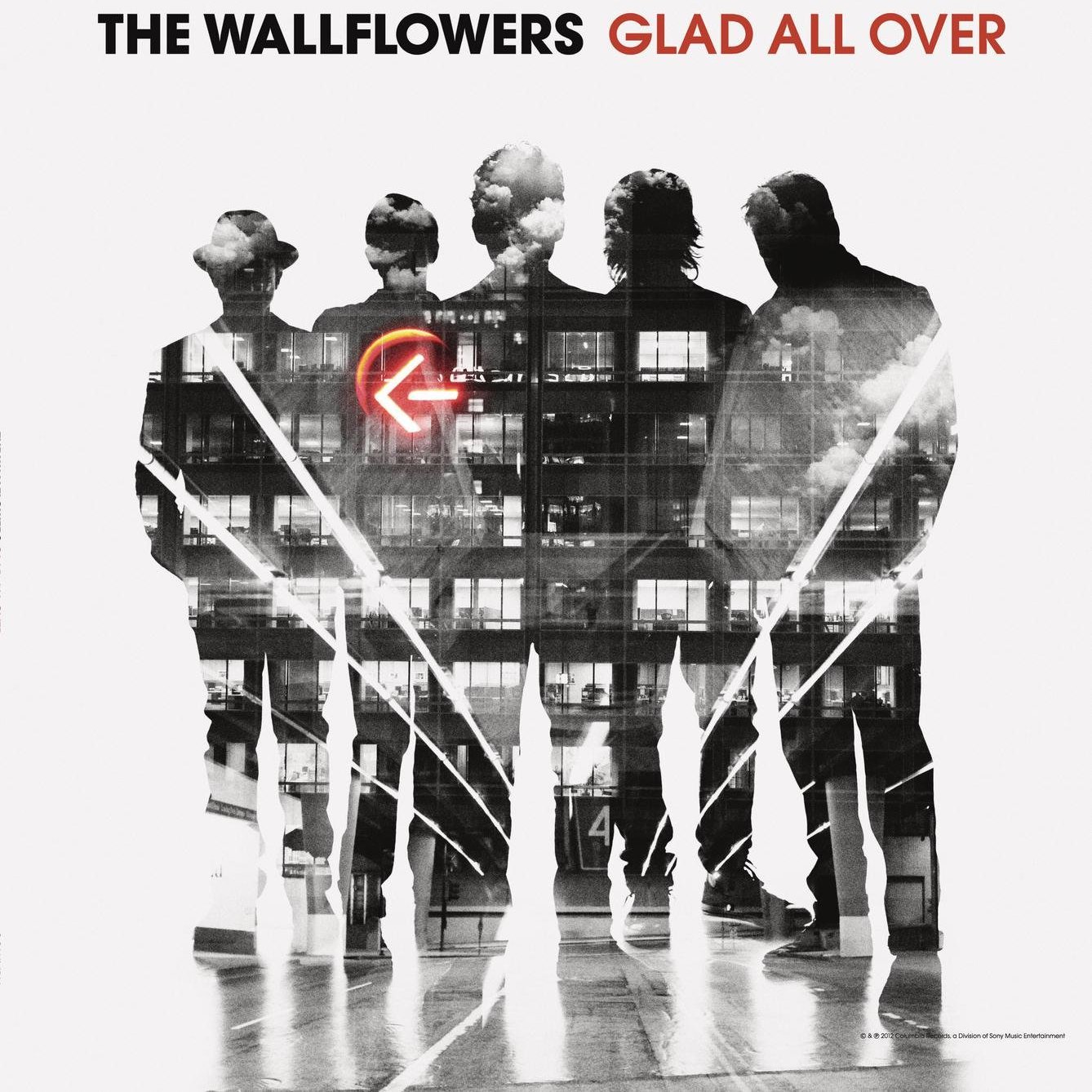
Why did it take so long for this reunion to happen? Was it a case of time healing old wounds?
I wouldn’t say there were a tremendous amount of wounds. We didn’t really take that break for the reasons other people do. We had just been doing it so long. Specifically, I had. I’d always done Wallflowers records. If I wasn’t making them, I was writing them. The other guys had opportunities to write, record and tour with other people. But it never seemed I did. So it was just timely to step away from it and come back when things had been reprioritized. It was a long time coming.
How did things get reprioritized?
With some distance, everybody stumbled upon a real appreciation for one another and for what we had. There’s something special about this group of people. It’s really difficult to get the right chemistry. A lot of that comes from personalities; it’s not just about technique and skill levels. There’s chemistry when you have two people together and then you add a third and a fourth and a fifth. That’s the only room where that chemistry’s going to come together, and it’s going to bring out tremendous things in one another. I couldn’t name what it is, I just know that it comes in the room when we’re together. When you’re a solo artist and you cherry-pick your musicians, you’re going to get great musicians each time, but it takes time to develop any kind of chemistry where people are being really honest with one another, and bouncing off one another in the way that they can. That’s why bands tend to make great records and solo artists — well, they make great records, but they tend to be singer-songwriter records. And eventually I thought: ‘I want to make a rock ’n’ roll record; I’ll call The Wallflowers.’ And we’re coming back at it with all the right motivations.
What motivations?
We started playing together as teenagers because there was something striking about it. That gets mucked up; you get confused, people come and go, things get complicated. So we had a chance to come back to the group almost like we were 21 and just find the joy of what a ridiculous adventure it is to be us and to be in a rock ’n’ roll band and be touring the world after all these years. That sounds pretty good by me.
Did it feel like you were right back on the bike or did you have to scrape off the rust?
It’s a bit of both, you know. We’d all been in touch. There wasn’t anybody in the group I didn’t see for any amount of time. In terms of playing, it was relief and it was satisfying to get right back in there and realize that all that stuff was still there that we were hoping would be there, and then everybody came back in the room with only their good stuff. We’d all kind of let a lot of things go and just wanted to contribute what we’re great at. That just comes from years of doing it, especially with other people.
How did that affect the way you made the album?
We did it the way we did it when we were 21: We rehearsed for weeks, then went and performed our record. And you can really only do that when you’ve got a lot of chemistry and a great band that doesn’t need to sit around and overdub for days. We did very little of that. We’ve spent our time looking at computer screens. It’s kind of a fruitless venture, really. What people respond to in music is the interaction. So we were bent on just performing the songs. There’s a million ways to do it, but what I’m positive about is that a band has to perform music. That was the way we did it the first time. And I learned we were right the first time. So we’ve got a grip on this thing again and it reminds me of how we started.
The album sounds like it was made with a lot of enthusiasm.
Yeah, I think we did. When this group started, we had all those B3 organs and banjos and mandolins. We always thought it was traditional and we always saw it as the roots of rock music. It made sense to us. But it was never necessarily in vogue at any time. That has changed. Recently you see a lot of that. And i’m happy about that. It isn’t lost on me. I’m happy that we’re in the tradition of that. I think that we kept that going at a time when it wasn’t necessarily the most popular colours on your palette to be choosing from in music. But I hear similarities. I hear what people are doing now. and I think we all felt like this is ground that we’ve covered and ground that we’ve done really well and it’s a shame that we’re not working.
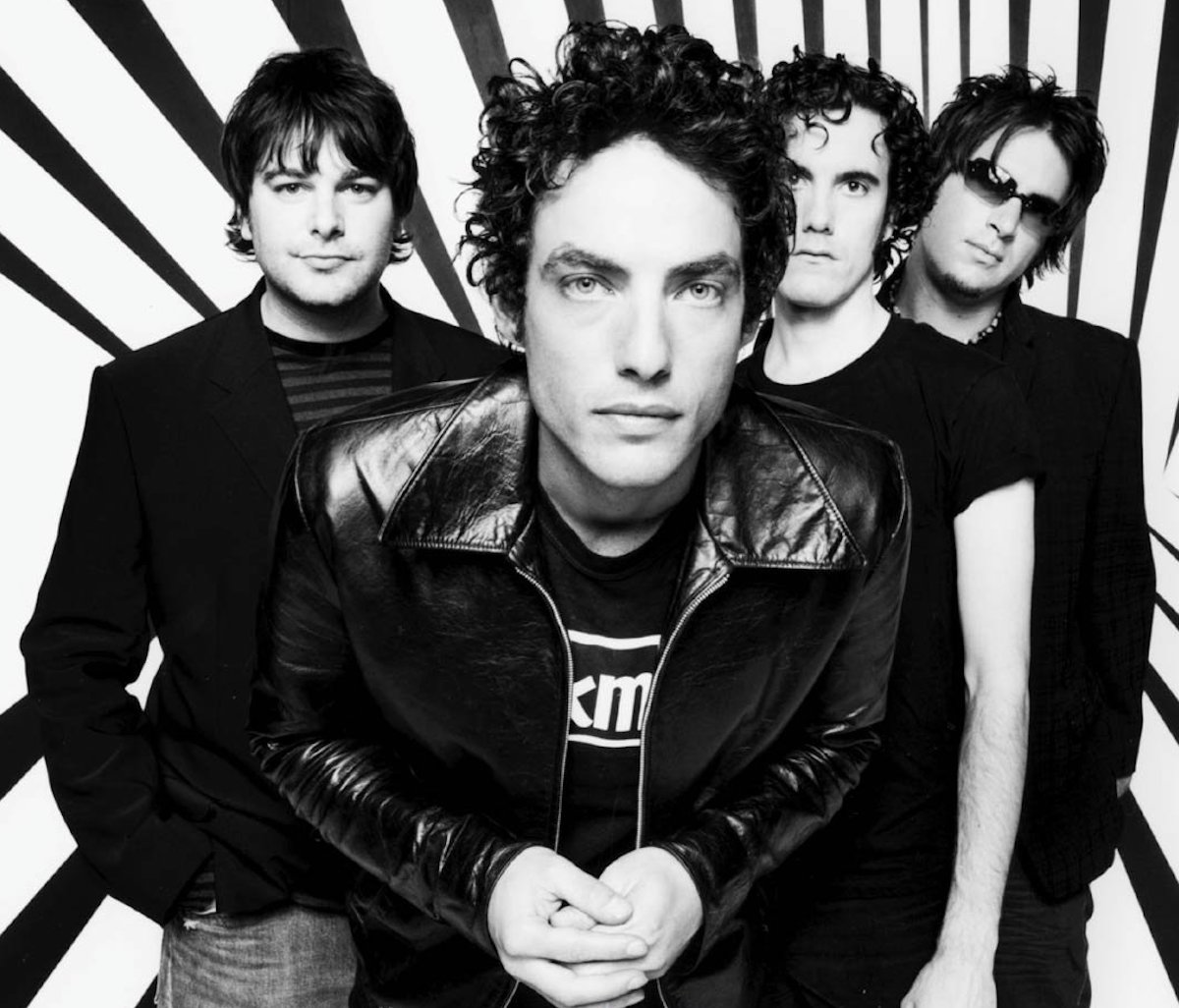
There are a lot of different styles in play here. Was that deliberate, or just what happened?
That really came from just sitting in the room and playing. If I write a song and complete it, I bring it to the group on guitar, and usually it comes with a lot of inherent qualities and tempos and grooves. But because we came into it from a different way this time, with really just the band starting in that room and making noise and referencing all our favourite music — ‘Let’s do a song like Creedence, let’s do a song like ZZ Top’ — and just throwing it out there. There’s no rules, you don’t have to solidify anything, it’s just a grab bag, let’s just go for it. Some things are going to work out and some won’t. But it really started from the ground up, which was wanting the music to feel good and not get caught up in chasing chord patterns and sequences and all that stuff that you can do sometimes. This was our plan this time, just to really get in there and from the ground up it should just feel good and then i’ll figure out how to get these songs moving with lyrics and etc.
It seems like a more direct route.
You have to learn that you were right the first time. That’s what i learned making this record. there was very much an a-ha moment of ‘You know, we had this right when we were 21.’ And then we tried different things and it was all worthwhile. But I think it’s funny that here we are again and we’ve got a grip on this thing again and this reminds me of how we started.
Is that what the title refers to?
I think so, yeah. I’m glad all over. And I’m glad it’s all over. You can look at it either way. They always come in twos for me. They don’t ever really mean one thing.
There are no ballads on the album. Was that a rule?
It wasn’t really a rule, but we had conversations about it. We’ve covered that ground plenty, the mid-tempo stuff. We don’t really need anymore midtempo ballads in our set. We kept shows in mind this time. We went in and we thought about what groove and tempo we were missing. We wanted it to be something we could take out on tour and feel good about.
Lyrically, you’re still writing a lot about love and war and religion and death.
I’m working the same terrain that I always do. I work within the structure of human interest and humanity. That’s where all the good stuff is. Sometimes I mean to say a lot, and sometimes I don’t mean anything. There’s no guidelines. Songs that just entertain people are just fantastic too. I have a real connection and draw to words. That’s just how I feel when I write them. I wish that were different sometimes. And none of that is supposed to suggest that I feel that any of my songs are important. They just have to entertain me. And there’s a certain phonic connection the words need to have for me to be interested. And in turn, the trick for me, I hope, is that they will mean a lot to the people they’re meant to mean a lot to, and if you don’t care for that stuff, I don’t want you to be turned off by it. I just need to put it together well enough that I want to sing it every night.
how did you end up working with Mick Jones of The Clash on Reboot the Mission and what was that like?
The Clash have unashamedly been a huge influence on me my whole life, as a band and as artists. I happened to see Mick Jones play last year with his reunion of Big Audio Dynamite and I was reminded of what a brilliant force he is. We got to say hello to one another and he was fresh on my mind when we did that song and there’s a name-check to Joe Strummer. We’re already kind of snipping at their tails there, so it would be ridiculous not to ask him.
So you had the song first? I would have thought it was other way around.
No, I’d love to say we stayed up all night long in the studio and jammed and that’s what we got. But we had the song almost finished. Obviously we had him in mind, but he’s over in the U.K., so we got in contact. He actually sings and plays guitar on two songs. I sent him both songs because I wanted him to feel like he had a choice. And to my surprise he chose both. He’s on Misfits and Lovers too.
Did being in Nashville in The Black Keys’ studio play any role in the proceedings?
Of course. It always does. But not because it was their studio. It’s a great studio. But being in Nashville for us was really about being isolated. I could probably make a record anywhere. It’s really about getting away from what your normal thing is the rest of your life. It’s good for groups to get out of town — different element, different environment, different people, different theme. That in and of itself is very important.
I have to ask what you think of your father’s new album Tempest.
I haven’t heard it. I’m just waiting like everybody else.
What? I would think you’d be able to get a preview.
Oh yeah, I could get it. But I’m happy to wait. From what I’ve heard, it’s a monster.
Do you two put a little friendly wager on who’s going to do better?
That would be a losing bet on my part, my friend.


